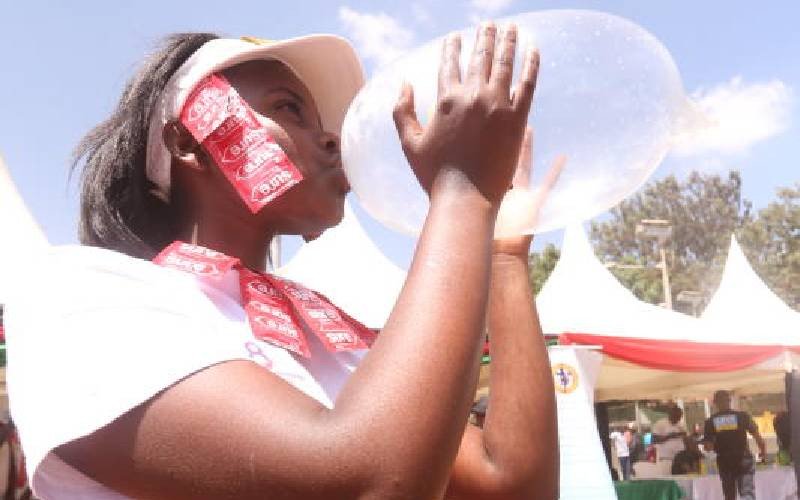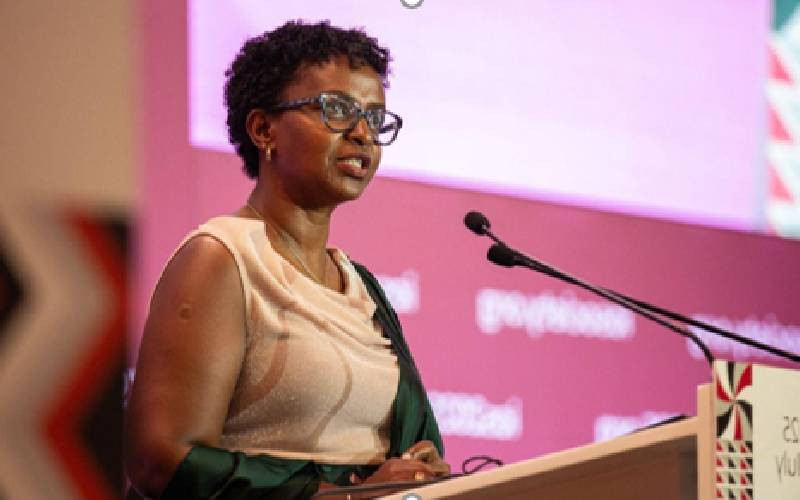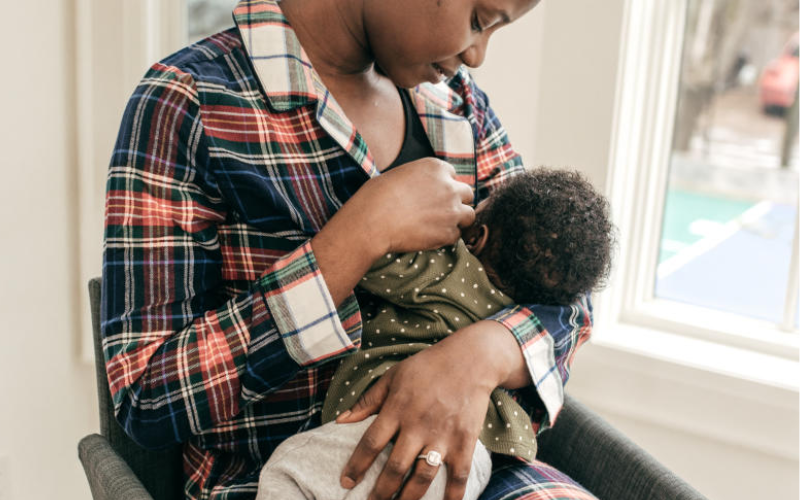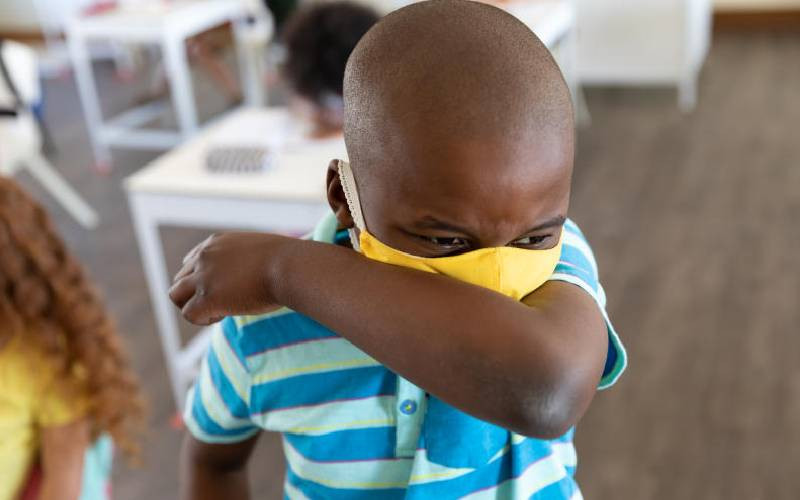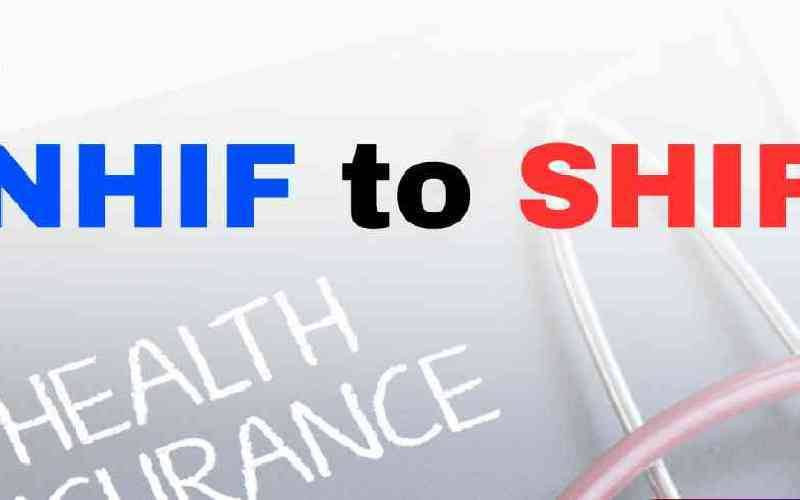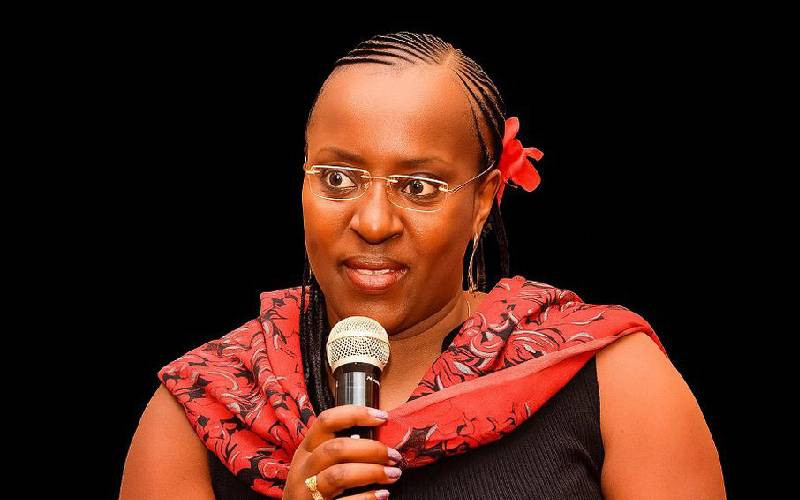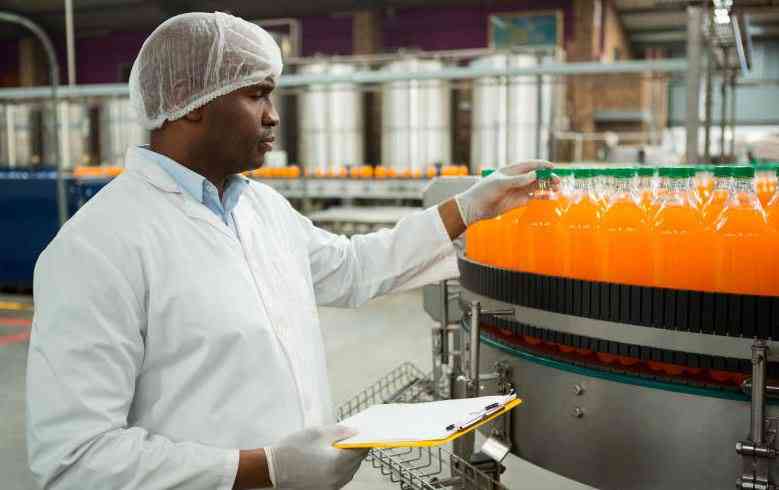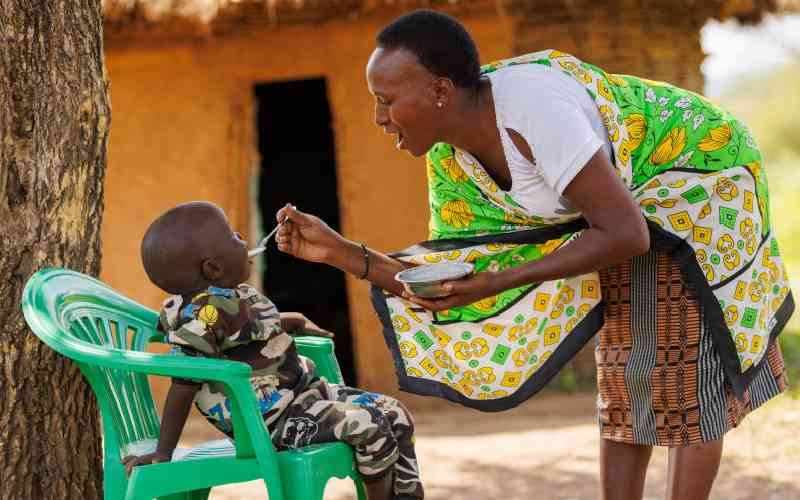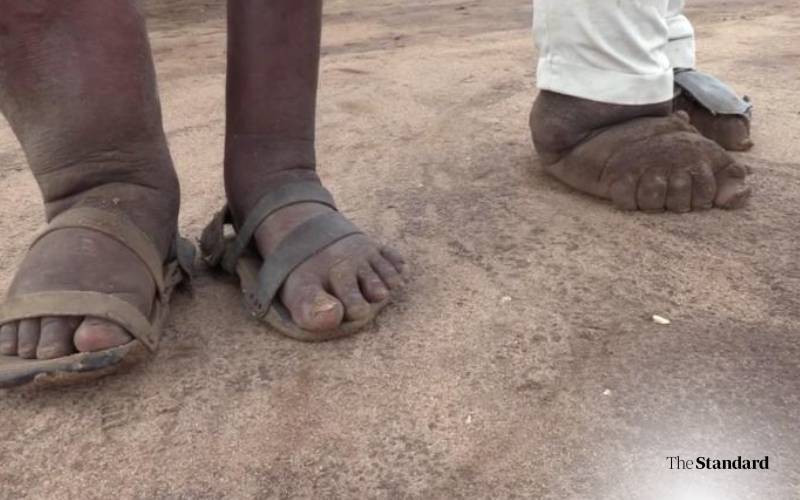
Katana Chengo, Chai Kivatsi, Swollen Limbs affected by Lymphatic Filariasis. July 7, 2023. [File Courtesy, Standard]
Imagine waking up one morning to find your leg swollen and painful. You assume it's an insect bite, maybe a sprain. Days pass. It swells more, and people begin to whisper. Soon, you can't walk without pain. You stop going to work, the neighbours think you're cursed. Then the stigma follows you. But you're not cursed. You are living with Lymphatic Filariasis, or rather matende, one of Kenya’s many Neglected Tropical Diseases (NTDs)—a family of illnesses that rarely make headlines but quietly wreck lives. NTDs damage dignity, productivity, and dreams. They thrive where poverty lingers, where clean water is scarce, where sanitation is weak, and where the health system has not fully reached. And most of all, they thrive in silence.
Neglected Tropical Diseases, or NTDs, are a group of infections caused by parasites and bacteria. They affect more than 6 million people in Kenya. Some of the most common NTDs in Kenya include intestinal worms, bilharzia (which comes from contact with contaminated water), a blinding eye infection called trachoma, elephantiasis which causes severe swelling of the legs, kala-azar (a deadly fever spread by sandflies), and snakebites, which are now officially recognized by the World Health Organization as a major concern.
The sad truth is that all these diseases can be prevented and treated. But they continue to spread because the people most affected are often overlooked, and the conditions they live in make it easy for these illnesses to thrive.
How Do People Get Infected?You get schistosomiasis, for example when you walk through freshwater where tiny worms released by snails enter through your skin. And for intestinal worms, they sneak in when you eat with unwashed hands or walk barefoot where people defecate in the open. On the other hand, lymphatic filariasis is transmitted through mosquito bites—not the kind that give you malaria, but those tiny ones that breed quietly around your home carrying the filarial worms. Trachoma spreads through house flies, dirty faces, and unclean hands—easily preventable, yet tragically common in many households due to poor sanitation.
The True CostThe true cost of these diseases is huge and more painful than you could ever imagine. Imagine a young girl missing school every time her abdomen swells due to schistosomiasis. Or the cost when a farmer hides his swollen leg from his village, no longer able to till the land or go to the market. Or the boy in Turkana who survives kala-azar, only to relapse months later because the nearest treatment facility is hundreds of kilometres away. NTDs entrench poverty. They stigmatize. They make simple ambitions, like walking to school or smiling with friends, impossible.
But Here’s the HopeThese diseases are not a life sentence—they are beatable. The way forward is through the 4Ps: Precision Public Health, People-Centred Health Systems, Policy, and Partnerships. Precision means using data to guide targeted responses that reach the communities most at risk. People-centred health systems ensure that care is accessible, respectful, and driven by the needs of those affected. Policy must be bold and responsive, integrating NTD services into national strategies and universal health coverage. And partnerships—across government, private sector, and civil society—must remain strong and rooted in local realities to create lasting, scalable change.
What You Can DoSo what does this mean for you, my reader? It means you must see these diseases for what they are: not just health problems, but development barriers. It means teaching your children to wash their hands with soap. It means demanding safe water and proper sanitation from leaders. It means asking your local clinic about deworming days or screenings for trachoma and bilharzia. It means refusing to let stigma make a disease invisible. To those affected, know that you are not alone. You are not dirty, and you are certainly not cursed. You are someone who deserves care, and that care exists. The Ministry of Health, Amref Health Africa, the END Fund, and other dedicated partners are working tirelessly to eliminate these diseases and stand with you every step of the way.
- With no money, African states told to bank on disease prevention
- Luke Kanyang'areng: The nurse who turned his pain into purpose
- Study: Suckling children at risk of bilharzia too
- Kwale village where mangoes are thriving and mosquitos are losing crippling sting
Keep Reading
Dr Martin Muchangi works with Amref
 The Standard Group Plc is a multi-media organization with investments in media
platforms spanning newspaper print
operations, television, radio broadcasting, digital and online services. The
Standard Group is recognized as a
leading multi-media house in Kenya with a key influence in matters of national
and international interest.
The Standard Group Plc is a multi-media organization with investments in media
platforms spanning newspaper print
operations, television, radio broadcasting, digital and online services. The
Standard Group is recognized as a
leading multi-media house in Kenya with a key influence in matters of national
and international interest.

